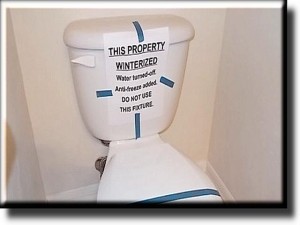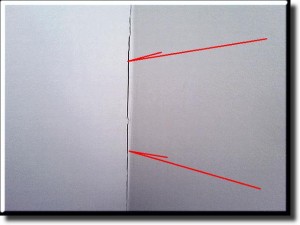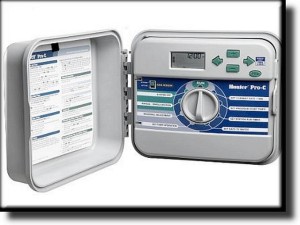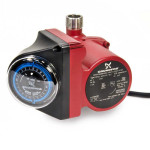6 Additional Steps for More Comprehensive Buyer Due Diligence
Let’s talk about fix-n-flip listings. We have, literally, decades of inspecting fix-n-flip homes, and without exception, there is always evidence of illegal repairs / modifications being performed.
Illegal, because Nevada law, NRS 624.031, does not allow a Handyman, an unlicensed contractor, or a homeowner who intends to sell the home within one year of:·
- Performing any work normally accomplished by a: licensed Electrical Contractor.
- Performing any work normally accomplished by a: licensed Plumbing Contractor.
- Performing any work normally accomplished by a: licensed HVAC Contractor.
- Performing any work where the combined cost of materials and labor exceed $1,000.
- Performing any work requiring a permit.
- Performing any safety related work.
Bear in mind, a home inspection is a visual inspection service. Home inspectors cannot open walls, ceilings, or floors to inspect the repairs or modifications that have been performed to the home. There are a great many issues that can get past even the most diligent home inspector because they have been covered-up and are not visible.
Yes, the lights in the kitchen may illuminate when the inspector flips the light switch, but there is no way for an inspector to discover that the connections within the wall are improper and were accomplished with band-aids, bubblegum, and bailing wire.
A recent fix-n-flip we inspected, appeared to have adequate drainage when we ran the faucets and other plumbing fixtures in the home. But we only operate these fixtures for a very short period of time. But when the home became occupied and the homeowner was taking a shower in one bathroom, their daughter was taking a shower in another bathroom, and mom was doing a load of laundry, water began backing up out of sinks, toilets and other drains in the home. The kitchen sink overflowed, and water began erupting from all the bathroom sinks.
Further investigation by a licensed plumbing contractor revealed that a lot of the drain piping in the home had been replaced with PVC instead of ABS pipe, and the piping lacked the requisite slope to drain properly. This included pipe that had been installed in the concrete slab of the home and it was only discovered using a camera that was sent down into the piping.
A lot of the brand-new floor tile in the home will need to be pulled up (destroyed) and the concrete will need to be jack-hammered out to properly replace the improper drain piping.
In this home, we discovered, in the course of our visual inspection, multiple GFCI receptacles on one circuit; a clear indication that the modifications / repairs had not been accomplished by a licensed Electrical contractor. We also discovered the brand-new water heater was missing the seismic restraint straps, the temperature / pressure (TP) relief valve piping was improperly installed, and the gas line was missing the drip leg / sediment trap; a sure indication that it was not installed by a licensed Plumbing contractor. And, further investigation revealed that it was not installed using the benefits of the permit process- which is required for a water heater.
Illegal repairs are not covered by any home warranty, and the improper drain piping was not covered by homeowner’s insurance. It will cost the new homeowner many thousands of dollars to correct. It’s criminal- literally!
The fact is, many fix-n-flip homes are “upgraded” and modified by a construction team employed by the investor homeowner. In some cases, there may be a General contractor involved where everyone performing the repairs are working under the General contractor’s license. But the people performing the work are not licensed themselves. They may have skills, but their skills do not include an understanding of minimum required construction standards.
The repairs may look great, but they’re not properly accomplished. Band-aids, bubblegum, and bailing wire. To be clear; a licensed General contractor can legally perform a whole range of repairs and work, but a General contractor cannot do any electrical, plumbing, or HVAC repairs. These must be accomplished by the licensed contractors in those specialty areas.
So be very cautious in considering the purchase of any fix-n-flip property. If you do fall in love with the home enough to put in an offer to purchase, prepare yourself for additional due diligence. And there’s only so much a real estate agent & buyer can accomplish in a very short due diligence period. Do not kid yourself into believing there won’t be issues after closing. There will be.
Here are 6 Additional Steps for More Comprehensive Buyer Due Diligence when a recent renovation is apparent:
- While it is required in the SRPD (Seller’s Real Property Disclosure,) for the Seller to disclose code violations to potential Buyers, the answer is often “NO”. The question is located on page 2 #1(c): The question is: “Are you aware of any of the following? 1) Structure (c) Any construction, modifications, alterations, or repairs made without required state, city or county building permits? If the answer is “NO”, ask the seller for any permits that were taken out during the renovation.
- Ask the Seller for all invoices for the renovation. Invoices are NOT spreadsheets, they are the actual invoices that the Flipper/Seller has paid the vendor. Invoices for work completed by a licensed Nevada Contractor provides a statuatory warranty for workmanship and craftmanship that conveys with Title transfer. Verify the licenses of the Contractors with the Nevada Contractor’s Board: https://app.nvcontractorsboard.com/Clients/NVSCB/Public/ContractorLicenseSearch/ContractorLicenseSearch.aspx.
- Call your local code compliance authority to review invoices and verify that all of the renovations are up to current state, city or county code and properly permitted. Local code contact information is listed on our due diligence package.
- Additional items that are red flags: items you may visualize yourself such as new plumbing or lighting fixtures. Both plumbing and electrical require specialty contractors per NRS 624.031. Items found in the report such as a newer water heater.
- Task your agent to review photos from previous listings in the MLS to figure out if walls were moved, cabinets replaced, showers/bathtubs were moved, etc. Make sure these obvious renovations match invoices obtained and proper permits were pulled.
- Ask for blueprints used in extensive renovations in case they are necessary in the future.
This checklist may be thorough, however, it is not all encompassing. You become an “investigator” when you purchase a home. Please seek additional guidance from your real estate agent, lender, home inspector, title & escrow officer, attorney, appraiser, etc to fulfill all the duties you need to do when purchasing your next home. Again, this checklist is not “all inclusive” – it is a guide. We are pleased and honored to be a resource to the resource!













